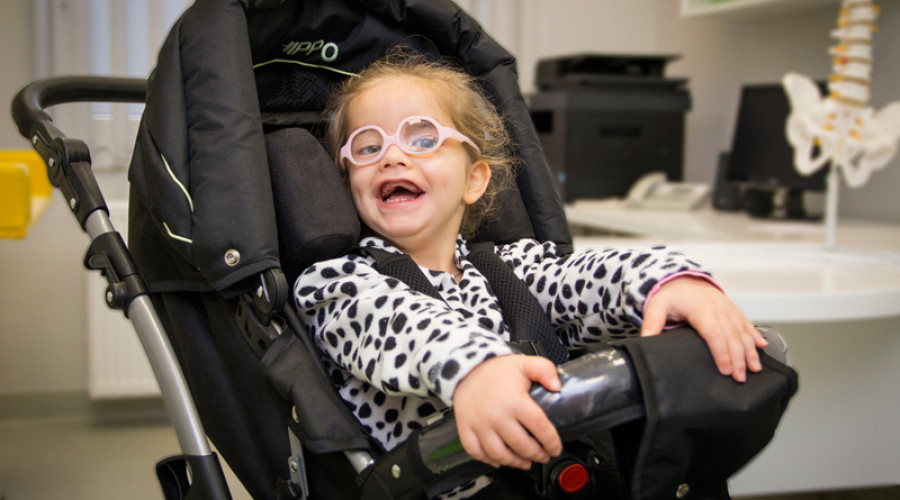Help from psychologists for children with cerebral palsy

Cerebral palsy (CP) is one of the most common developmental disabilities in children, affecting millions of families worldwide. It is not just a medical diagnosis, but a complex condition that affects all aspects of a child’s life and that of their loved ones. According to data, CP occurs in 2-3 children out of 1,000 births, making it a major public health problem.
CP occurs as a result of damage to the developing brain, most often before, during, or shortly after birth. This disorder primarily manifests itself in movement disorders, but its impact is much broader. Children with CP may experience difficulties with speech, vision, hearing, and may also face cognitive and emotional problems. It is important to understand that CP is not a progressive disease, meaning the brain damage does not worsen over time. However, symptoms may change as the child grows and develops.
Cerebral palsy forms vary and may manifest differently in each child. The most common is the spastic form, characterized by increased muscle tone. There are also athetoid forms with involuntary movements, ataxic forms with impaired coordination and balance, and mixed forms. Each form of cerebral palsy requires an individual approach to treatment and rehabilitation.
Diagnosis of cerebral palsy usually occurs in early childhood, when parents or doctors notice a delay in the development of motor skills. Early diagnosis is critically important, as it allows for timely treatment and rehabilitation, which significantly improves the prognosis. Diagnosis includes a neurological examination, motor skills assessment, and various brain imaging techniques such as MRI.
Treatment of cerebral palsy requires a comprehensive approach that combines the efforts of various specialists. The main treatment options are:
- Physical therapy to improve motor functions
- Occupational therapy to develop skills of daily living
- Speech therapy to improve speech and swallowing
- Medication to manage symptoms
- Surgery (if needed)
However, physical therapy is only one part of a comprehensive approach to helping children with CP. Psychological support plays an equally important role. Children with cerebral palsy often face emotional difficulties related to their condition. They may experience frustration due to physical limitations, anxiety about social interactions, or depression due to feeling different from their peers. Psychotherapy helps children with cerebral palsy and their families cope with these emotional challenges.
The role of psychotherapy in the treatment of cerebral palsy is often underestimated, but it is extremely important for the overall well-being of the child. A psychologist can help the child develop a positive self-perception despite physical limitations. Working on self-esteem and self-confidence is especially important during adolescence, when issues of identity and self-acceptance come to the fore.
In addition, psychotherapy helps develop social skills, which is critical for children with cerebral palsy. Many of them face difficulties in communicating with peers, which can lead to social isolation. A psychologist can help a child learn to express their thoughts and feelings, cope with social anxiety, and build friendships.
Family therapy is also important. The birth of a child with cerebral palsy is stressful for the entire family. Parents may experience guilt, anxiety, or depression. Siblings may feel neglected. Family therapy helps all family members adapt to the situation, improve communication, and find ways to support each other.
Research shows that psychological support significantly improves the quality of life of children with cerebral palsy and their families. For example, a study published in the journal "Child: Care, Health and Development" demonstrated that cognitive behavioral therapy is effective in reducing anxiety and depression in adolescents with cerebral palsy.
It is important to note that psychotherapy for cerebral palsy should be tailored to individual needs and capabilities each child. For example, for children with speech problems, non-verbal therapies such as art therapy or play therapy can be used. For children with cognitive impairments, therapeutic approaches should be modified accordingly.
In recent years, more and more attention has been paid to inclusive education for children with cerebral palsy. Psychologists play an important role in this process, helping teachers and classmates understand the characteristics of children with cerebral palsy and create a supportive environment in the classroom. They also help children with cerebral palsy to adapt to the school environment and cope with academic and social challenges.
Psychological support for a child with cerebral palsy is necessary for
- developing emotional stability,
- improving social skills,
- increasing self-esteem and self-confidence,
- working with the family to create a supportive environment,
- helping to adapt to the educational environment.
Despite all the challenges associated with cerebral palsy, it is important to remember that many people with this diagnosis lead full and happy lives. With the right support and treatment, children with cerebral palsy can achieve significant success in their studies, creativity, and professional activities. Success stories of people with cerebral palsy who have achieved outstanding results in various fields serve as inspiration and hope for many families.
If you or your child is living with cerebral palsy, it is important to remember that you are not alone. There are many resources and specialists ready to provide support. Our psychologists specialize in working with children with cerebral palsy and their families.

